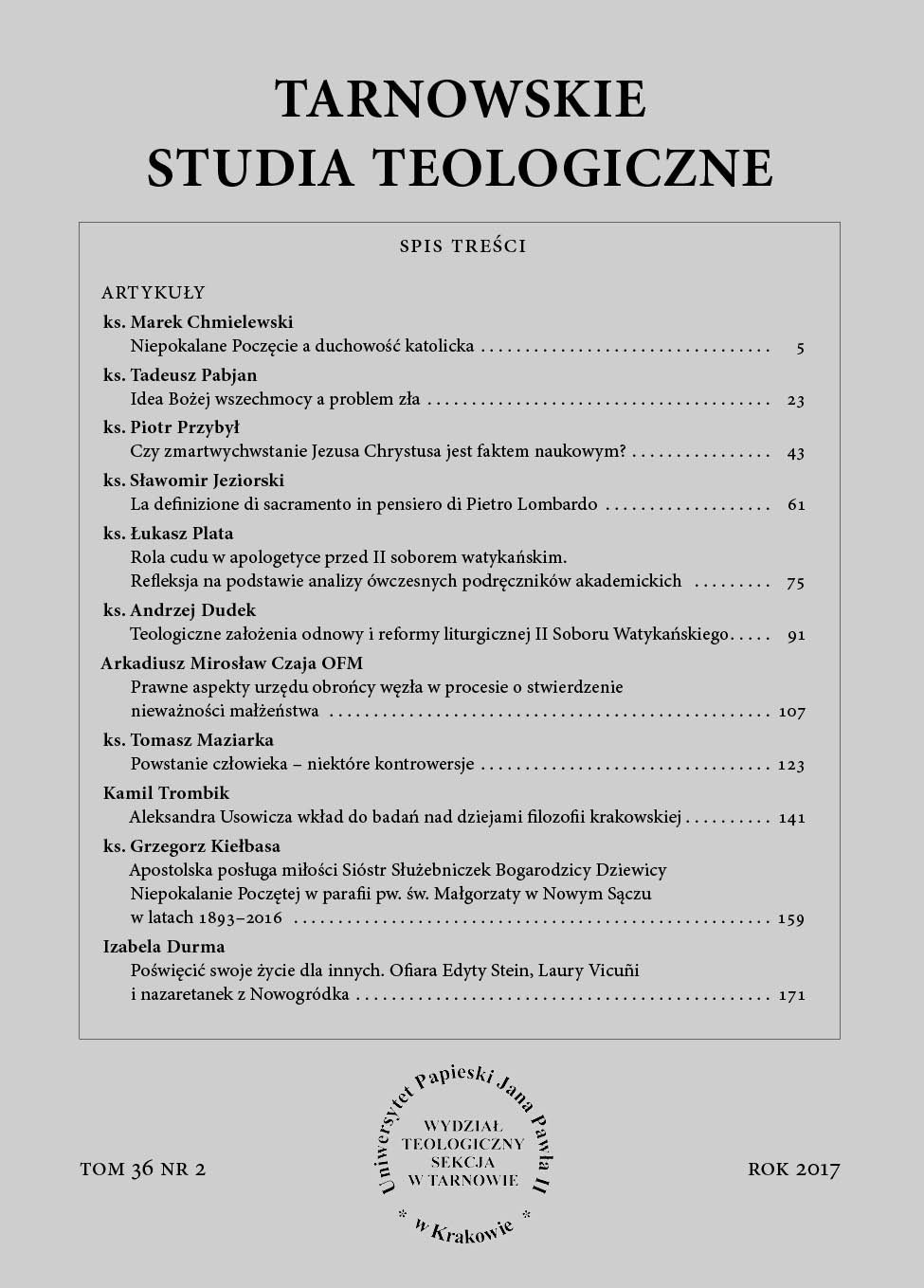The Spiritual Profile of the Seminarian Jan Ślęzak Based on Religious Retreat Notes 1935–1937
DOI:
https://doi.org/10.15633/tst.2623Keywords:
spirituality, prayer, Word of God, adoration, EucharistAbstract
The spiritual notes of seminarian Jan Ślęzak need to be read during the prayer. As a result, it would be easier to understand their deeper meaning that grew in the heart of a young boy, the heart, which was filled with the desire for sanctity. This desire, as he used to say, needs to be achieved with “the iron discipline.”
After a lecture of Notatki… we can see that he was open for the seminary formation and he had a vision of the future. Jan submitted himself to the Word of God and worshipped Jesus Christ present in the Blessed Sacrament. This was a source of his spiritual life that he was discovering when we was a seminarian and remained faithful to it till the end of his life. Consequently, his priestly service was so fruitful. Many testimonies of his parishioners are the evidence of his outstanding work.
A close relation with God in the prayer enabled seminarian Jan to discover very important issue: gifts that we receive from God. A person who is sensitive to God’s matters is grateful for all that comes from God. The person sees that his whole life and each day is a gift for others.
A deeper look, which Jan had, is expressed in his notes on the topic of death. Life is a short period which we need to live in a total closeness to God. It means that death is a passage to the eternity, where the experience of God is in fullness of joy. A spiritual figure of Jan Ślęzak is an example for the present formation of seminarians. It is good to draw on the experience of people, for whom God was a center of every action.
References
Ewagriusz z Pontu, O modlitwie, w: Ewagriusz z Pontu, Pisma ascetyczne, t. 1, przekład zbiorowy, wstęp i oprac. L. Nieścior OMI (Źródła Monastyczne, 18), Kraków 1998 s. 275–305.
Franciszek, Adhortacja apostolska Evangelii gaudium, Kraków 2013.
Jan Paweł II, Encyklika Redemptor hominis, Poznań 1979.
Katechizm Kościoła Katolickiego, Pallottinum 1994.
Ratzinger J., Śmierć i życie wieczne, Warszawa 2000.
Ratzinger J./Benedykt XVI, Nauczać i zgłębiać Bożą miłość. Teksty wybrane, t. 1: Kapłaństwo, Lublin 2016.
Ślęzak J., Notatki rekolekcyjne alumna 1935–1937, Ołpiny 2016.
Św. Jan z Ávila, Pisma do kapłanów, Poznań 2017.
Downloads
Published
Issue
Section
License
Authors who publish with this journal agree to the following terms:
- Authors retain the copyright and full publishing rights without restrictions, and grant the journal right of first publication with the work simultaneously licensed under a Creative Commons Attribution 4.0 International License that allows others to share the work with an acknowledgement of the work's authorship and initial publication in this journal.
- Authors are able to enter into separate, additional contractual arrangements for the non-exclusive distribution of the journal's published version of the work (e.g., post it to an institutional repository or publish it in a book), with an acknowledgement of its initial publication in this journal.
- Authors are permitted and encouraged to post their work online (e.g., in institutional repositories or on their website) prior to and during the submission process, as it can lead to productive exchanges, as well as earlier and greater citation of published work (See The Effect of Open Access).

